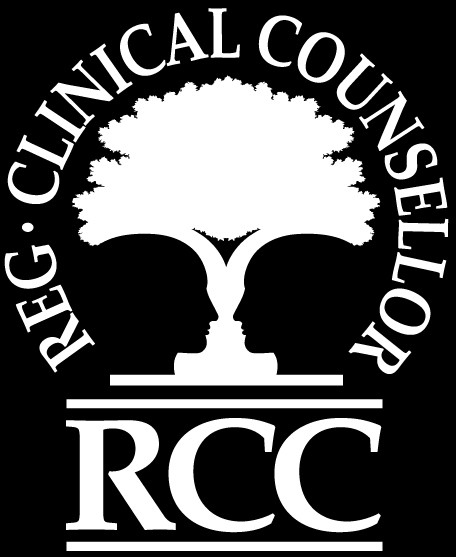Life can be stressful for everybody, and at times that stress can get a little out of control. The detrimental effects of stress are well known: from physical problems like ulcers and digestive issues, to psychological struggles like poor concentration, increased anxiety, mood fluctuations and so forth. Stress seems to cause more things to feel stressed about.
Overwhelming pressures and demands can be self-inflicted, or put onto us by others. Once you’ve teased out and set aside the internal stressors – like perfectionism, and unrelenting /unrealistic standards – what’s left are the external stresses and pressures that can make you feel you’re being pushed and pulled in a thousand directions, with no relief in sight.
There are many ways that we try to reduce stress. Some are healthy, but many are not. Most people have some sort of idea about basic ‘self-care’ during times of stress, the things we are ‘supposed to’ do. For example: exercise regularly, have some acupuncture or massage therapy, get a good night’s sleep, take a yoga class, meditate, take an extended break or vacation, etcetera.
It all seems like common sense. So why is it the more stressed-out we get, the less likely we are to do the things we need to do to combat it? The answer I hear the most is “I have no time”.
It’s true. We are busy, busy, busy. The busier we are the more stressed-out we feel, the more we need to be taking care of ourselves, and the less time we have to do it. We run out of time, we run out of energy, we put ourselves last, and the stress builds up.
If trying to incorporate self-care into a hectic schedule seems to add more stress instead of reducing it, then it’s time to get creative. Here are eight ways to reduce stress in no time flat:
-
Step away.
No matter what you’re working on, when you notice that you’re starting to feel frustrated it’s time to take a break. You’re not going to be able to think clearly if your blood pressure is through the roof and you’re gritting your teeth. The break doesn’t need to be for hours (as wonderful as that would be), try just a few moments. Step away from whatever it is. Notice that you’re feeling keyed up. Once that feeling calms down, return to the task. If those feelings start back up again, take another break…. And repeat as necessary.
-
Stretch it out.
I encourage clients to try starting their day with some simple stretching. Not a full routine, just a few brief stretches to get the blood flowing and make that mind-body connection. Throughout the day stretching is helpful as well. Take #1 suggestion and throw in a couple stretches: you’ll notice that fired up, stressed out, feeling will start to dissolve much quicker.
-
Check your body and breathe deep.
Take a brief moment to check-in with your body, if you’re feeling stressed out you’re probably physically tensed up; your shoulders are most likely hunched, your breathing is probably short and shallow, your muscles are tight. Just as our mind sends messages to our body, our body sends messages to our mind. By purposefully relaxing the muscles, dropping the shoulders down, and taking nice, deep, slow breaths, the message gets sent upstairs to chill out.
-
Smile.
This one goes a long with #3. Studies have shown that smiling releases endorphins, decreases blood pressure, relieves stress, triggers positive thoughts, and can change our mood. So smile, even if you don’t feel like it.
-
Switch up the music.
The power of music is hard to deny. During times of stress I encourage people to change the music they listen to. In the car switch to classical or ‘chill out’ music, or something soothing preferably with no lyrics. Lyrics tend to trigger memories of events, people, and relationships which can increase stress levels. Turn off the rage-inducing, energizing, pounding tunes, or the song that reminds you of the ex who broke your heart, and instead listen to something calming, peaceful and relaxing.
-
Mindful moments.
The key to this one when time is of the essence is to bring mindfulness into stuff you’re already doing. There are so many things that we already do every day that are relaxing and feel good, but our minds are so busy focusing on stressful things we don’t notice them. So choose to notice. The example I often give is taking a shower, and letting your mind be there in that shower too (instead of thinking about work, or planning the grocery list, or replaying that last argument with your partner, etcetera). Take a moment to just notice how good the hot water feels, how nice the soap or shampoo smells, and the sound of the water. Trying to incorporate mindful moments into things like washing the dishes, eating (take a moment and just notice the food, how it tastes, the texture, the smell). The key is to give your mind a break and bring it to the here and now present moment to allow yourself to fully enjoy what you are doing.
-
Talk nice.
Decide to be your own personal coach, instead of a slave-driver. Remind yourself things like “I’m okay”, “This will be fine in the end”, “I’m going to get through this”, “It won’t be like this forever”. Also try to switch the “I must” and “I have to” and “I should” to “I want to” and “I chose to”. We are much more likely to respond to supportive comments of encouragement than to authoritarian demands, even from ourselves.
-
Professionally decompress.
Consider connecting with a therapist to talk. I’ve heard many say they don’t want to “bother” their friends and family, and therefore don’t talk about what’s going on. Instead they try to keep it all bottled up and deal with it alone; which simply does not work. Yes, seeing a therapist may be an hour of your time; but even one hour a month of uninterrupted and supportive ‘you-time’, with a professional you feel comfortable with, can make the world of difference.
Be kind to yourself, even when you don’t have time. You’re worth it and you deserve it.


